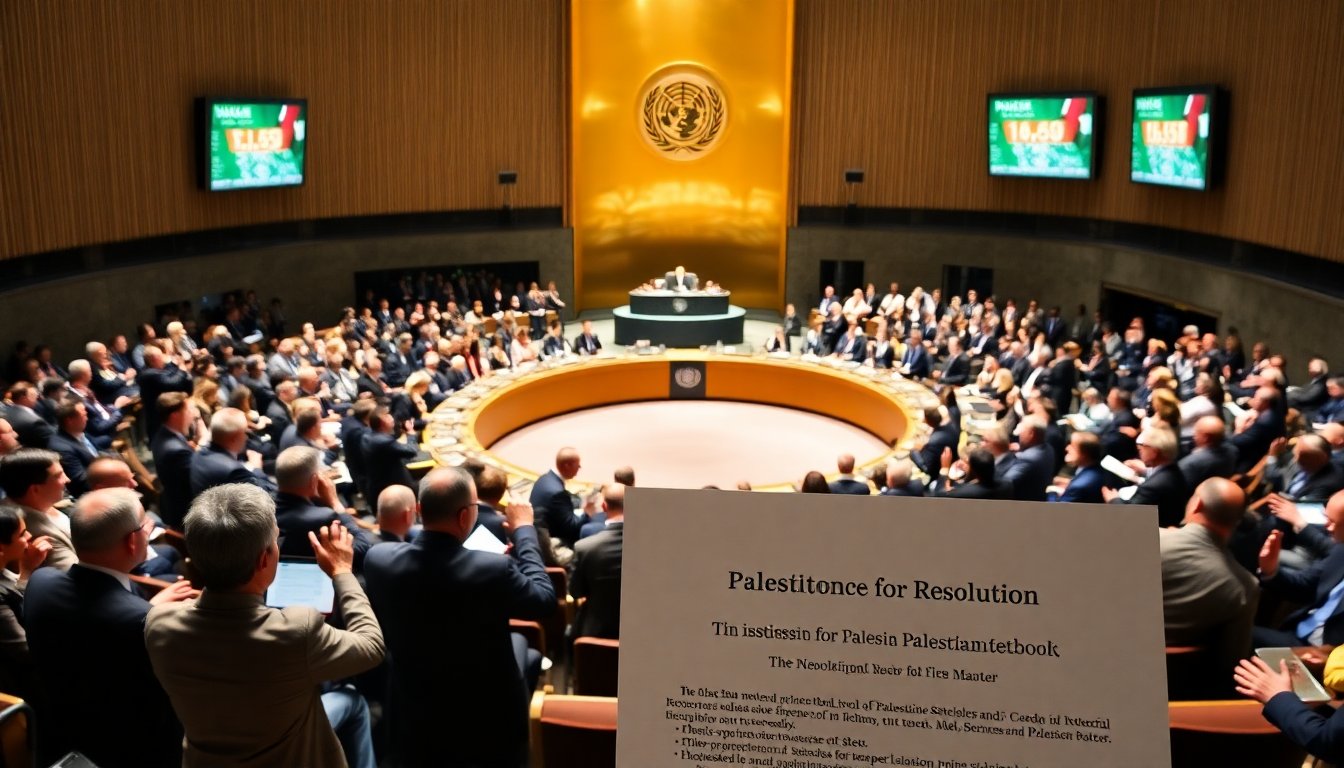Table of Contents
The recent resolution passed by the United Nations General Assembly regarding Palestinian statehood has ignited considerable debate, particularly within the U.S. administration. With a vote tally of 142 in favor, the United States stood among a minority opposing the declaration, asserting their belief that it could inadvertently bolster Hamas. This article examines the implications of the U.S. rejection and the broader geopolitical context surrounding this issue.
Context of the UN Resolution
In July, a proposal was introduced at a United Nations conference aimed at establishing a definitive path to Palestinian statehood. The resolution not only condemns the recent attacks by Hamas but also calls for the release of hostages and urges Hamas to relinquish its control over Gaza. The U.S. response was one of outright condemnation. Counselor Morgan Ortagus framed the resolution as a detrimental move, arguing that it undermines peace efforts and rewards terrorist activities.
This perspective aligns with a longstanding U.S. policy toward the Israeli-Palestinian conflict, which emphasizes direct negotiations over unilateral declarations. Ortagus stated, “Make no mistake — this resolution is a gift to Hamas,” highlighting a concern that such measures could prolong violence rather than facilitate resolution. The implications of this stance resonate within the broader context of regional stability and international diplomacy.
International Reactions and Implications
The global response has been mixed. Some countries, particularly France, voiced strong support for the resolution. The French Foreign Ministry described it as a “historic vote” reflecting a collective commitment to a roadmap for peace in the region. This divergence underscores the complexities of international relations regarding the Israeli-Palestinian conflict.
Israel’s U.N. Ambassador Danny Danon criticized the vote, dismissing it as mere theatrics and warning of potential increased support for Hamas. His remarks highlight concerns that recognizing Palestinian statehood could embolden hostile factions rather than foster productive dialogue. Advocacy groups have cautioned that the resolution could threaten American interests and undermine long-standing peace agreements, such as the Abraham Accords.
Future Projections and Strategic Considerations
Looking forward, the U.S. administration has indicated its intention to maintain a firm stance against recognizing Palestinian statehood without clear and tangible steps toward peace. Upcoming U.N. meetings, expected to feature significant discussions on Palestinian statehood, will be crucial in shaping future U.S. foreign policy in the region. Secretary of State Marco Rubio’s planned visit to Israel suggests a proactive approach to counter narratives favoring unilateral recognition of Palestine.
In summary, the U.S. rejection of the recent UN resolution on Palestinian statehood reflects a broader strategy aimed at reinforcing its commitment to Israel and counteracting perceived threats from groups like Hamas. As the international landscape evolves, the repercussions of these decisions will likely play a vital role in shaping future diplomatic efforts and the pursuit of lasting peace in the region.


